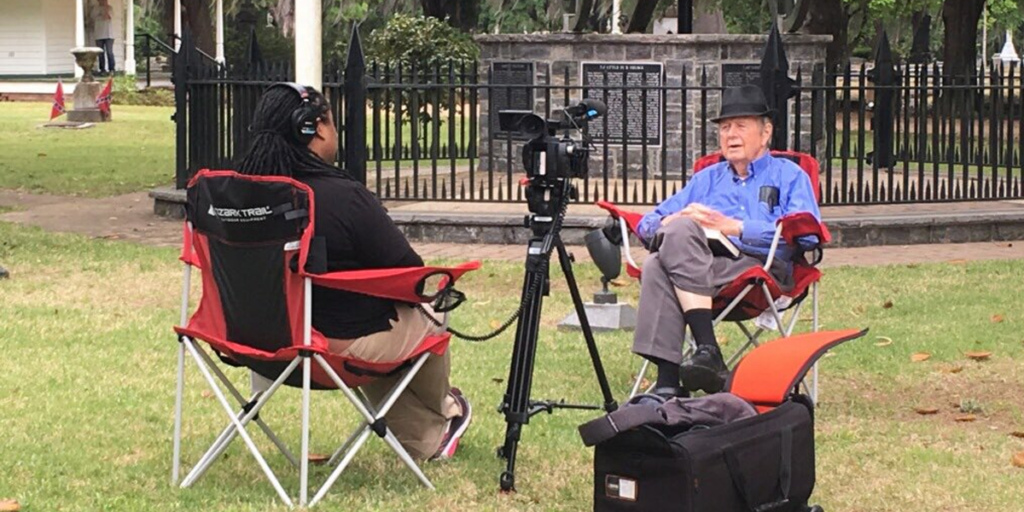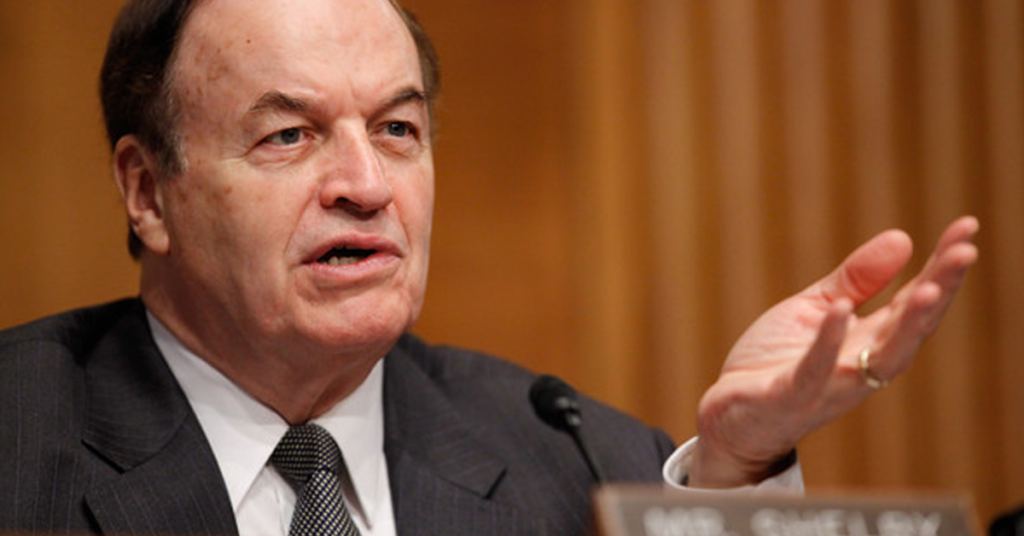Randall Woodfin outlines $436M budget proposal, $8M increase from 2018

Birmingham Mayor Randall Woodfin on Wednesday outlined his plans to city council for Birmingham’s 2019 operating budget, which calls for an $8 million increase over 2018’s. “It’s a new day in Birmingham. Not just through the budget process, but with how we spend tax dollars. The budget we have created falls in line with our core values and commitment to neighborhood revitalization. It represents some difficult and responsible decisions that must be made to support our priorities,” Woodfin said to the councilors. Woodfin proposed a $436 million dollar budget, that focus on five broad areas from which to work: Personnel: Includes a one percent cost of living adjustment for city employees, as well as the continuation of longevity pay. Also eliminates 133 vacant positions, saving the $4.7 million. Operations: Establishes a Preventive Maintenance Program with a plan to address the needs of the city infrastructure. Will begin with an initial investment of half a million dollars. Overtime: Identifies opportunities to reduce overtime costs through efficiency and accountability. New standards for the funding of boards and agencies: All non-departments must submit budgets that focus more on programs and services for the residents of Birmingham and not primarily to support salaries. In addition, an internal audit process of all contracts will be put in place. Neighborhood revitalization: Creates new standards to support our absolute priority of neighborhood revitalization. Reflects demands to increase funding for demolition and weed abatement, sidewalks and paving roads. Establishes of the Department of Innovation and Economic Opportunity, and a priority will be set for an increase and support in small business growth in our neighborhoods. Woodfin explained the budget review process began in January. “We held three days of departmental training, which followed with the request forms to be returned and reviewed by the Budget Office at the end of February,” the mayor explained. “Throughout this process, there were two critical messages. Each department must prioritize needs over wants. There were no sacred cows. Nothing is viewed as untouchable… the positions we have taken demand accountability from within the departments and non-departments.” Woodfin said he plans to present his budget at the City Council meeting on Tuesday, ahead of a May 20 deadline as the 2019 fiscal year begins July 1. Read a full transcript of the mayor’s plan here.
Leadership Birmingham Executive Director Ann Florie retiring

Ann Florie starts an interview about retiring as executive director of Leadership Birmingham by talking about her predecessors and how much they meant to the organization. “We’re the beneficiaries of what they did,” Florie says of Leadership Birmingham’s first two directors, Sheila Blair and Elise Penfield. Those who know her well say that is the essence of Florie: deflecting attention from herself, even as she has been the face of the leadership program for the past 14 years. “She personally and symbolically is Leadership Birmingham in the eyes and minds of those who have been through the class with her,” says Mike Warren, CEO of Children’s of Alabama and chairman of Leadership Birmingham’s board of trustees. “To talk about her predecessors and their importance to the organization, that does sound like Ann. It is my great hope that in the recesses of her mind that Ann knows she’s done an extraordinary job and we are most grateful for it,” he says. Florie this week announced her retirement, effective Sept. 1. “I will be 65 in September,” she says. “I think it’s a good time.” Florie offers no concrete plans for life after Leadership Birmingham other than to say, “I think I’ll be involved in something.” Her role as the leadership program’s director has allowed her “to be involved in a whole lot of things in the community. I’ll miss being in the mix.” To those who know her, it’s impossible to imagine Florie not in the mix. She has been deeply involved in the Birmingham community for decades – as a Mountain Brook school board member, in Junior League, the Downtown Kiwanis Club, the Public Affairs Research Council of Alabama, the Women’s Fund, Region 2020, the Birmingham Business Alliance, the Freshwater Land Trust, the UAB Comprehensive Cancer Center, United Way of Central Alabama, McWane Science Center, the Jefferson County Personnel Board, the Birmingham Water Works Board and, of course, Leadership Birmingham. “Ann is civically obsessed,” says Guin Robinson, who is a graduate of Florie’s first class in 2005 and a longtime friend. “To people who are civically obsessed, it’s almost impossible for them to sit down. “As long as there’s a mix, Ann Florie will be in it,” he says. Florie entered the mix soon after she and her husband, Mike, moved to Birmingham in 1978. The Arkansas native grew up in the tiny town of Weldon and went to school at Newcomb College at Tulane University in New Orleans. She met her future husband in law school there and moved with him to Birmingham for his new job. Florie began to volunteer, becoming involved in PTA and Junior League and the Mountain Brook school board. She credits growing up in a small town with fueling her passion for community work. “I literally grew up in a town of 100 people. You operate at a grassroots level. You get to know people,” she says, noting that her parents were “very engaged” in the community. “Growing up in a small town sitting on the sidelines isn’t an option,” Florie says. “Everyone has to be engaged and everyone has to work together, so I guess I gravitated to what I knew – projects that involved understanding who people are and how they can work together to get things done.” Florie looks back on her career and says she could have been smarter about her career path, but has no regrets for how it turned out. “It’s been incredible. I think working with people around issues I cared about, it’s been great, fascinating, interesting – all the things one hopes,” she says, adding with a laugh, “I didn’t make a lot of money. “But I got to meet people I would never have known and be involved in things. It was a great gift.” Robinson, the director of community outreach for Jefferson State Community College, chairs the committee tasked with hiring Florie’s replacement. Doing so will be a tall order, he says. “We have to look at what has happened and we have to look at where we are now, and build on the history and the work of Ann Florie and so many others, including the other executive directors,” he says. “Let’s just say this. I think everyone got it right to this point. We’ve got to get it right going forward.” Sharon Blackburn, a senior U.S. district judge and a member of the hiring committee, says of Florie: “It’s impossible to overstate the impact Ann has had on Leadership Birmingham and our city. During my year in Leadership Birmingham (2011), I was amazed by her enthusiasm and knowledge. I can’t imagine it without Ann.” Leadership Birmingham has had few transitions in its own leadership in its three-and-a-half-decade existence. The result of the Birmingham Area Chamber of Commerce’s effort in 1981 to start a community leadership program, the first class was selected in 1983. Every year since, Leadership Birmingham has brought together a diverse group of 50 to 60 leaders in the Birmingham area to explore issues including education, government, health care, criminal justice, economic development and quality of life. “What we hope, what the program is designed to do, is have people leave here having found different perspectives, a broader knowledge about the community, and be able to do whatever they do in a more informed way,” Florie says. “We hope we give you the tools to do what you do differently and more effectively, and that it works to the benefit of the community.” She believes Leadership Birmingham works in ways small and large. She has seen the effect the intense, day-long meetings each month can have on the class. “I’ve watched people change over the course of a year where they have a better understanding of the community and can apply what they have learned to what they do,” she says. “It changes your perspective on what you do. It empowers people to make a difference.” That difference can show up on a large scale. For example, graduates of Leadership Birmingham’s 1997 class – including Florie – began Region 2020, which led efforts to promote regional cooperation and citizen
Will Ainsworth: Illegal immigration is an epidemic that demands a cure

Imagine for a moment that while you and your family sleep, another family breaks into your home and moves into your basement in the dark of night. Once you discover them, you call the authorities to have them removed but are told that because they have established residency, it would be wrong for you to force them to leave. Or, even worse, the authorities openly acknowledge the law has been broken but inform you that your elected officials have ordered them not to cooperate. Certainly you and your family would feel violated, helpless, and angry at the absurdity of the arguments and the immorality of the situation. A similar scenario is happening in the United States thousands of times each week, except instead of breaking into your homes, illegal immigrants are breaking our borders and violating our laws with their very presence. Illegal immigration is an epidemic that has gone untreated for far too long, and it is one that drains billions of taxpayer dollars as we are forced to provide unearned government services to those who do not pay a dime of taxes back into the system. Allowing a subculture of an estimated 12.5 million illegal immigrants to live off the grid and under the radar hurts our nation’s economy, drains our jobs, increases our crime rates, and threatens our homeland security. It also insults those honorable immigrants who have taken the time, effort, and financial commitment to follow our laws and move here legally. An estimated 65,000 illegal immigrants currently reside in Alabama, which is down from a previous approximation of 80,000 thanks in large part to the toughest-in-the-nation immigration law that the Republican Legislature approved in 2010. Unfortunately, liberal judges and activist federal courts have neutered and rejected the most effective portions of the state law that protected our sovereign borders, so the number of illegals in Alabama is likely to rise again. During my one term in the Alabama House, I have strongly supported every measure before the body that seeks to seal our porous borders, enforce the immigration laws on the books, and discourage illegal immigrants from planting their roots in our communities. Among those measures was a resolution that urges Congress to fund and expedite the construction of a secure wall across the border between the United States and Mexico, which continues to be a cornerstone priority of President Donald Trump’s administration. Statistics show that nearly 1,000 aliens are caught and captured each day while trying to illegally cross the Mexican border, but it a significant number of aliens successfully avoid detection and capture. An impenetrable border wall is an absolute necessity, and I am proud that an Alabama-based construction company is among a handful that is under consideration to build the edifice for the Customs and Border Protection Agency. I also stood tall for proposed legislation that would withhold state funding from any cities, counties, or public colleges and universities that defy immigration laws and declare themselves “sanctuary” areas that harbor illegal aliens. The bill was a proactive step to protect Alabamians before any city or campus in our state takes action that would help harbor illegal aliens and block the enforcement of immigration laws. The Legislature adjourned before the measure could be enacted, but I plan to use the bully pulpit of the lieutenant governor’s office to push for its reintroduction and rally the public to insist upon its passage. If the federal bureaucracy, the liberal Democrat opposition in Congress, and the career politicians who sell their votes to special interests refuse to properly protect our nation’s borders, I believe the responsibility to protect Alabama’s borders must fall upon the shoulders of state leaders. It is a responsibility that I, for one, am not only willing to shoulder, I am eager to shoulder it. ••• Guntersville-Republican State Rep. Will Ainsworth is a candidate for lieutenant governor. Elected to the Legislature in 2014, Ainsworth currently represents Alabama’s House District 27, which includes portions of Marshall, DeKalb, and Blount counties.
Harper Lee lawyer seeks to block suit over ‘Mockingbird’ production

A lawyer for the estate of Harper Lee is trying to halt a lawsuit filed by a producer who plans to stage a Broadway production of the writer’s classic “To Kill a Mockingbird.” Court records show Lee attorney Tonja Carter on Tuesday asked a federal court in Alabama to block a federal lawsuit filed last week in New York by producer Scott Rudin’s company, Rudinplay. Carter filed a lawsuit last month that contends writer Aaron Sorkin’s script for a stage adaptation of “Mockingbird” set to open in December alters characters in Lee’s book, counter to a contract with the estate. Rudinplay is seeking $10 million from Lee’s estate and threatening to cancel the play. Carter contends the company’s lawsuit concerns the same issues covered by her suit and should be blocked. Republished with permission from the Associated Press.
National Memorial for Peace and Justice in Montgomery open to the public

The National Memorial for Peace and Justice, a six-acre site overlooking the Alabama State Capitol in Montgomery opened to the public on Thursday. Dedicated to 4,075 blacks that research by the Equal Justice Initiative (EJI) shows were killed by lynching in the U.S. from 1877 to 1950, the memorial features their names engraved on 800 steel rectangles, one for each U.S. county where lynchings occurred. The site will also feature a museum, From Enslavement to Mass Incarceration, that will be situated within 150 yards of one of the South’s most prominent slave auction sites and the Alabama River dock and rail station where tens of thousands of enslaved black people were trafficked. The museum will contain high-tech exhibits, artifacts, recordings, and films, as well as comprehensive data and information on lynching and racial segregation. It will also connect the history of racial inequality with contemporary issues of mass incarceration, excessive punishment, and police violence. An official opening ceremony for memorial will take place at the Montgomery Convention Center in downtown Montgomery Thursday evening. it will be accompanied by the two-day EJI Peace and Justice Summit at the Montgomery Performing Arts Center. Alabama 7th District U.S. Rep. Terri Sewell, who will be in attendance for the opening ceremony of the unveiling on Thursday, said the memorial “puts on display the unspeakable brutality and the human cost of lynching.” “The National Memorial for Peace and Justice puts on display the unspeakable brutality and the human cost of lynching and racial terror in America,” explained Sewell. “No matter how painful, these are memories which our nation must confront. We cannot appreciate how far we have come without acknowledging where we have been.” “It is especially powerful that this Memorial finds its home in Alabama, where more than 300 African Americans were killed by lynching and millions more were terrorized by white supremacy. In Montgomery, where dozens of markers still commemorate the confederacy, a remembrance of racial violence and its victims is long overdue. Along with the U.S. Civil Rights Trail, the Rosa Parks Museum, and other historic sites in Montgomery, the National Memorial for Peace and Justice uses the lessons learned from our past as a model for healing and sustainable economic growth that will give visitors from around the world a truer understanding of our history.”
C-SPAN to feature Selma in 2018 Cities Tour

Selma, Ala.’s about to be in the national spotlight once again. C-SPAN is in Selma all week filming for its 2018 Cities Tour. The tour takes Book TV and American History TV on the road to feature the literary life and history of selected cities during special weekends on the public affairs network. “It not only introduces America to what makes each city special but hopefully maybe teaches you something about your own community as well,” said show producer Ashley Hill during a press conference at Selma City Hall on Monday. The network on Monday began live-tweeting its experience in Selma: Selma, AL was one of the South’s major military manufacturing centers during the #CivilWar. We spoke with historian Benny Austin about the Selma Ordnance & Naval Foundry, as well as the Battle of Selma, at the Old Depot Museum. #alabamahistory pic.twitter.com/pin1IUr1JN — C-SPAN Cities Tour (@CSPANCities) April 25, 2018 We toured @TheJacksonHome w/Jawana Jackson & learned about her mother Richie Jackson’s book “The House by the Side of the Road”. The Jackson home was host to Dr. Martin Luther King, Jr. during preparations for the #Selma to Montgomery Voters Rights March. #alabamahistory pic.twitter.com/S8ZyELuCuQ — C-SPAN Cities Tour (@CSPANCities) April 25, 2018 We toured #Selma’s Old Live Oak Cemetery to learn about the noteworthy people buried there, including former US Vice President under Pierce, William Rufus King. King was the one who gave the city of Selma its name, which means “high seat or throne”. #alabamahistory pic.twitter.com/7wcuBF4LDG — C-SPAN Cities Tour (@CSPANCities) April 25, 2018 Today we took a driving tour of #Selma w/Dianne Harris, a student foot soldier during the 1965 Voting Rights marches. Ms. Harris talked about her experiences & showed us sites such as the Edmund Pettus Bridge, Brown Chapel, and Dallas County Court House. See the tour 5/19-20. pic.twitter.com/EegR2a29T3 — C-SPAN Cities Tour (@CSPANCities) April 25, 2018 While at #Selma’s Old Live Oak Cemetery, we interviewed historian and author Alston Fitts on his book “Selma: A Bicentennial History”. Catch this and all our other Selma programming on C-SPAN 2 & C-SPAN 3, May 19-20. pic.twitter.com/WvG8WixTBJ — C-SPAN Cities Tour (@CSPANCities) April 25, 2018 While in Selma, C-SPAN is scheduled to film from the National Voting Rights Museum, the Selma to Montgomery National Historic Trail, the history of the Edmund Pettus Bridge, the Civil War, as well as Old Cahawba. The Selma segment will air nationwide May 19th and 20th.
Former President George H.W. Bush out of intensive care, making progress

Former President George H.W. Bush was moved out of intensive care and into a regular patient room at a Houston hospital on Wednesday as he recovers from an infection that required his hospitalization a day after his wife’s funeral, a family spokesman said. The nation’s 41st president is expected to remain at Houston Methodist Hospital for “several more days,” spokesman Jim McGrath said. Bush, who is 93, is being treated for an infection that spread to his blood. “He is alert and talking with hospital staff, family and friends, and his doctors are very pleased with his progress,” McGrath said in a statement. He noted that Bush was more focused on the Houston Rockets playoff series against the Minnesota Timberwolves “than anything that landed him in the hospital.” Bush, frequently accompanied by his wife, has long been a fixture at Houston sporting events. During a Wednesday appearance at Brown University in Providence, Rhode Island, former Florida Gov. Jeb Bush said his father will be leaving the hospital on Friday. He called his father “stronger than an ox” and the “greatest man alive.” Bush was hospitalized on Sunday, a day after he attended the funeral and burial of his wife, Barbara. Married for 73 years, the Bushes were the longest-married presidential couple in U.S. history. Barbara Bush was 92 when she died on April 17 at their Houston home. Bush sent a tweet earlier Wednesday thanking Houston for its “professionalism and obvious care” during the memorials and services for his wife. He specifically cited Houston Mayor Sylvester Turner, the city’s police and transit agency “and really all Houstonians” for “making Barbara’s visitors and funeral guests feel so welcomed.” He also thanked St. Martin’s Episcopal Church, where the funeral was held and where he and his wife worshipped for years, and Second Baptist Church, which served as a staging area a few miles away for city buses that carried thousands of visitors to St. Martin’s for a public viewing a day before the funeral. McGrath said the former president is thankful for everyone sending prayers and good wishes. Republished with permission from the Associated Press.
Richard Shelby votes in favor of improved Senate nominations procedure

Senate Republicans on Wednesday voted in favor a resolution that would shorten debate time on most presidential nominees in hopes of allowing a more effective confirmation process for certain judicial and executive nominations. Members of the Senate Committee on Rules and Administration voted 10-9 to a advance the resolution proposed by Oklahoma-Republican Sen. James Lankford. Under the proposed rule, Cabinet-level nominees, Supreme Court nominees, and Court of Appeals nominees could still be debated post-cloture for a maximum of 30 hours. Meanwhile, post-cloture debate for most executive branch nominees would be reduced from 30 hours to eight hours, with the exception of District Court nominees who would be capped at two hours. Alabama-Republican U.S. Senator Richard Shelby (R-Ala.), a senior member of the Senate Committee on Rules and Administration, voted in favor of the resolution. “I am proud to see that we are making progress toward improving the Senate nominations process,” said Shelby. “Despite stalling tactics from the Democrats, the Republican-led Senate is one step closer to expeditiously confirming President Trump’s judicial nominees. Once confirmed, these nominees will not only help impact courts in Alabama and other individual states, but they will also have the ability to influence the entire nation for generations to come.” In December 2017, Senator Shelby held a hearing as chairman of the Rules Committee to review Senator Lankford’s resolution. The measure now awaits consideration by the full Senate. In 2017, the Senate confirmed 261 of President Donald Trump’s nominations, compared to 418 nominations in President Barack Obama’s first year and 483 nominations in President George W. Bush’s first year. Additionally, Trump’s nominees have faced 88 cloture votes in the first year, versus a total of 24 cloture votes for the previous six presidents. The state of Alabama currently has five District Court nominees awaiting consideration before the full Senate.
Prosecutor on Justice’s opioid crackdown favors tough tact

Mary Daly has heard the criticism: That the tough-on-drugs approach favored by the Trump administration is cruel, ineffective and a return to the failed policies of the 1980s. She’s not buying it. “We need to use tough prosecutions if we are going to get our way out of this epidemic,” said Daly, a longtime federal drug prosecutor recently tapped to oversee the Justice Department’s ambitious efforts to attack America’s opioid abuse crisis. “We don’t ignore the need for prevention and treatment efforts, but the notion that tough enforcement is the wrong approach is wrong.” Daly, who prosecuted gang members and drug traffickers for 13 years in New York and Virginia, said her work has given her a close-up look at the drug problem. President Donald Trump and Attorney General Jeff Sessions have made combatting the opioid epidemic a cornerstone of the crime-fighting agenda they both share. Trump has encouraged the use of the death penalty against traffickers when possible, a request Sessions then codified in a directive to federal prosecutors. Daly wasn’t responsible for that policy, but her selection aligns with the tough approach. She said she supports Sessions’ undoing of an Obama-era policy that aimed to show more leniency to lower-level drug offenders. And she favors strict enforcement to rein in the epidemic that saw a record 42,000 opioid related overdose deaths in 2016. The daughter of William Barr, who was attorney general under President George H.W. Bush, Daly was responsible for some of the biggest and most complex international drug trafficking cases in the Eastern District of Virginia, maintaining a heavy case load even as supervisor of the narcotics unit, said James L. Trump, a fellow prosecutor who worked alongside her there. She brought a quiet confidence to the courtroom, and a desire for fairness and consistency, he said. “She believed that adherence to the law and consistency with the law would bring about just results,” said Trump, who has no relation to the president. “If there was a philosophy, it is what I find in most good prosecutors which is that the law is the law, whether our personal beliefs are different in terms of sentencing policy doesn’t really matter.” In her new role, much of Daly’s focus will be on fentanyl, the deadly painkiller fueling the crisis. Under her watch, the Justice Department is going after dealers who use the anonymity of the internet to peddle fentanyl from overseas into American homes, pharmacies and doctors who recklessly overprescribe pain pills, as well as the kind of major traffickers Daly prosecuted in the field. “We have a unique drug on the table in fentanyl. Very small quantities can kill people,” Daly said, adding that the deadly narcotic is showing up in cocaine and other less lethal drugs. “We do have to recalibrate a bit in terms of how we’re addressing the fentanyl threat and that may mean looking at people who are supplying lower quantities.” Both conservative and liberal critics fear such a philosophy could mark a return to the policies of the 1970s and 80s that unduly affected minority communities and flooded prisons by ensnaring mid- to low-level dealers. “It’s deadly, I get that, but that’s why we need to treat it in a really thoughtful way,” said Mark Holden, general counsel for the conservative Koch network. The left-leaning Brennan Center said the department’s focus should be on major traffickers. But it also pointed to efforts to target opioid manufacturers and distributors, which Daly also oversees, as a positive step. Already under Daly’s watch, the Justice Department has thrown its weight behind local officials in hundreds of lawsuits against the manufacturers and distributors of opioid painkillers. Prevention and treatment are also part of the department’s larger strategy, with prosecutors recommending treatment as part of a sentence and grant money devoted to programs. “I would argue they go hand-in-hand,” Daly said. “Oftentimes enforcement provides a good intervention in someone’s life to get them into treatment in a way that nothing else does.” Republished with permission from the Associated Press.
VA nominee accused of drunken behavior, reckless prescribing

White House doctor Ronny Jackson exhibited a pattern of recklessly prescribing drugs and drunken behavior, including crashing a government vehicle while intoxicated and doling out such a large supply of a prescription opioid that staffers panicked because they thought the drugs were missing, according to accusations compiled by Democratic staff on the committee considering his nomination as Veterans Affairs secretary. The summary was based on conversations with 23 of Jackson’s current and former colleagues at the White House Medical Unit. It is the latest blow to his nomination to lead the government’s second-largest Cabinet agency. In just a matter of days, the allegations have transformed Jackson’s reputation as a celebrated doctor attending the president to an embattled nominee accused of drinking on the job and over-prescribing drugs. He was seen pacing back and forth on the White House grounds Wednesday. And while the White House put on a full-scale defense of Jackson, spokesman Raj Shah said aides are “of course” preparing for the possibility that he might withdraw. “This is, as the president said, Dr. Jackson’s decision,” Shah said on CNN. Jackson huddled late Wednesday evening with top White House press staff. They declined to comment on the situation. A former colleague who spoke to The Associated Press described Jackson as a gregarious, Type A charmer who knew how to position himself for success — attentive to bosses but also causing unnecessary grief and consternation among colleagues. He said Jackson became known as “Candyman” because of the way he handed out drugs. The ex-colleague spoke on condition of anonymity because of fear of retaliation. The “Candyman” nickname was also cited in the summary released by the Democrats. In a section on Jackson’s prescribing practices, the summary said that in one case, missing Percocet tabs threw members of the White House Medical Unit into a panic — but it turned out he had prescribed a “large supply” of the opioid to a White House Military Office staffer. The allegations also referred to multiple incidents of Jackson’s intoxication while on duty, often on overseas trips. On at least one occasion he was nowhere to be found when his medical help was needed because “he was passed out drunk in his hotel room,” according to the summary. At a Secret Service going-away party, the summary says, Jackson got drunk and wrecked a government vehicle. Jackson has denied allegations of bad behavior and told reporters at the White House he was “still moving ahead as planned.” “I never wrecked a car,” he said. “I have no idea where that is coming from.” Reports of overprescribing and alcohol-related behavior problems can jeopardize a doctor’s license. Many state medical boards allow doctors to keep their licenses and return to practice if they complete special treatment programs and submit to random urine screens. The allegations were publicly released on the day that Jackson’s confirmation hearing was to have been held. The hearing was postponed indefinitely while the allegations against him are reviewed. “He treated the people above him very, very well. He treated the people below him very, very poorly,” Sen. Jon Tester, the ranking Democrat on the Senate Veterans Affairs Committee, told the AP. “It’s not surprising the people above him think he was doing a really, really good job.” White House Press Secretary Sarah Huckabee Sanders said Wednesday that Jackson had passed “at least four independent background checks” that found “no areas of concern.” “He has received more vetting than most nominees,” she said. Marc Short, the White House legislative director, could not say he was confident the allegations were false. He was “not familiar” with car wreck episode. But Short also suggested Tester was airing the allegations for political gain. “It’s quite unusual for a United States senator to take allegations that have not been fully investigated, but to flaunt them to the national public to suggest he’s the ‘candyman’ I think is outrageous,” Short said. Tester, speaking on MSNBC, acknowledged that not all the allegations had been verified. “Am I 100% rock solid sure that he did this? No,” Tester said. “But I’ve seen a pattern here that continues on and on and on.” Jackson met late at the Capitol with a key Republican on the Veterans Affairs Committee, Sen. Thom Tillis of North Carolina. They discussed a variety of subjects — “some were the allegations” — as well as Jackson’s credentials for the job. “It was just getting through the facts,” Tillis said. Veterans groups are dismayed over the continuing uncertainty at the VA, already beset by infighting over improvements to veterans care. “The American Legion is very concerned about the current lack of permanent leadership,” said Denise Rohan, national commander of The American Legion, the nation’s largest veterans organization. A watchdog report requested in 2012 and reviewed by the AP found that Jackson and a rival physician exhibited “unprofessional behaviors” as they engaged in a power struggle over the White House medical unit. That report by the Navy’s Medical Inspector General found a lack of trust in the leadership and low morale among staff members, who described the working environment as “being caught between parents going through a bitter divorce.” It included no references to improper prescribing of drugs or the use of alcohol, as alleged in the summary compiled by the Senate Democratic staff members. The White House has released handwritten reports from Trump and former President Barack Obama praising Jackson’s leadership and medical care and recommending him for promotion. Trump’s first VA secretary, David Shulkin, was dismissed after an ethics scandal and mounting rebellion within the agency. But Jackson has faced numerous questions from lawmakers and veterans groups about whether he has the experience to manage the department of 360,000 employees serving 9 million veterans. Republished with permission from the Associated Press.


